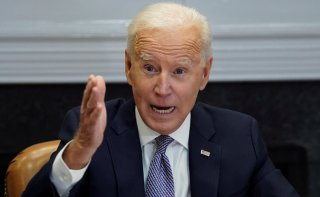Worth. Every. Penny. Why Americans Need Another Stimulus Payment
As early as January, Democratic legislators indicated support for not just a larger payment, but for regular monthly stimulus payments.
Here's What You Need to Remember: The Biden administration appears to recognize this reality. White House press secretary Jen Psaki recently addressed the question of another round of stimulus payments, saying that it was dependent on Congress while acknowledging that such a measure would be expensive.
Calls for a fourth round of direct federal stimulus payments continue. Representative Bonnie Watson Coleman (NJ-D) recently reiterated her support for such a measure, indicating that she would help to push through a plan to send additional payments to Americans.
Rep. Watson Coleman pointed to the positive effects of the first three rounds of stimulus payments have had on many people, saying that these payments “gave people some breathing room and it gave people a sense of some stability,” while arguing that the pandemic has been devastating for many families across the country.
Watson Coleman is far from the only Democratic lawmaker vocally supporting further direct stimulus payments. Towards the end of the Trump administration, Congress authorized the sending of a second round of stimulus checks of $600, over objections by many Democrats who argued that the figure was too small. Democrats then followed up by passing the American Relief Plan in March, which included a measure for the distribution of a third round of stimulus checks worth up to $1,400.
As early as January, Democratic legislators indicated support for not just a larger payment, but for regular monthly stimulus payments. A letter to President Biden and Vice President Harris, signed by a number of Democrats in the House of Representatives, advocated for monthly payments for the duration of the pandemic. Democrats in the Senate have also called on the President to pursue recurring payments, with a group of 21 Democratic Senators led by Finance Committee Chair Ron Wyden (OR-D) authoring a similar letter.
Vice President Kamala Harris has also previously indicated support for regular stimulus payments while still a member of the Senate, introducing a bill with Senator Bernie Sanders (VT-D) that called for monthly $2,000 payments.
Calls for recurring payments have not been limited to Democratic members of Congress. Over 100 economists, including former Obama administration official Jason Furman, signed a letter last year advocating for regular direct payments. Millions of Americans have also demonstrated support for regular payments, with one online petition calling for recurring $2,000 payments garnering over 2 million signatures.
Will it Happen?
Even with growing support in and out of government, it seems unlikely that regular direct payments will happen anytime soon. Republicans in Congress have not shown much support for the idea of recurring payments, and it appears unlikely that such a proposal would find sufficient support among the at least 10 Republican Senators that would be needed to prevent a filibuster.
The Biden administration appears to recognize this reality. White House press secretary Jen Psaki recently addressed the question of another round of stimulus payments, saying that it was dependent on Congress while acknowledging that such a measure would be expensive. Psaki pointed to the administration’s proposal for an expanded child tax credit that would see eligible parents receive $250 or $300 per month, which has been described by some as constituting an unofficial fourth-round of stimulus payments.
Eli Fuhrman is a contributing writer for The National Interest. This article first appeared earlier this year.
Image: Reuters

